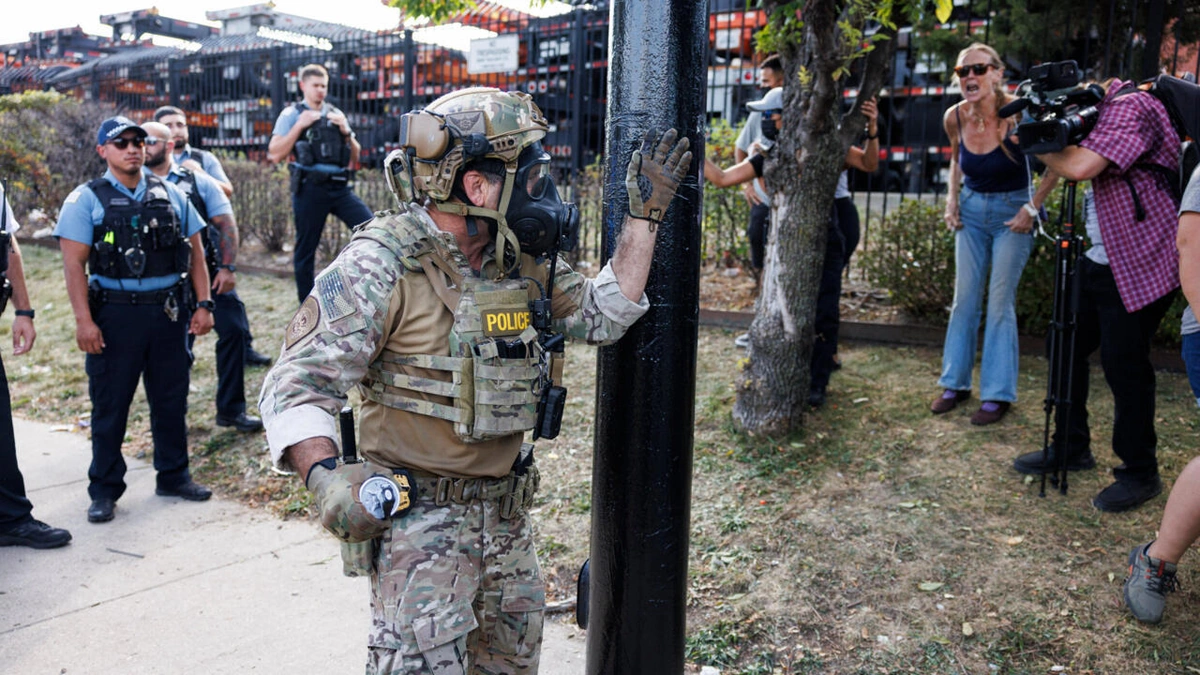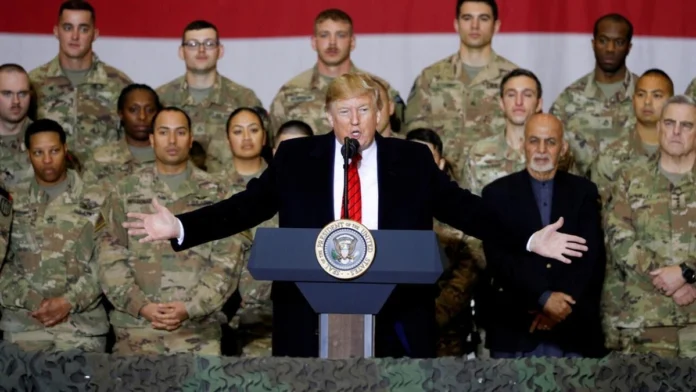The question isn’t just about Trump troops – it’s about the very fabric of American democracy. Remember January 6th? That wasn’t just a one-off event. It exposed deep fractures, and the possibility of a former president invoking the Insurrection Act, or something similar, isn’t as far-fetched as many might think. So, let’s dive into the ‘why’ behind this chilling question. Not just the legality, but the political and societal implications that could reverberate for decades. What fascinates me is how easily the guardrails of democracy can be bent, if not broken, by a determined individual.
The Insurrection Act | A Sleeping Giant

The Insurrection Act of 1807 grants the U.S. president the power to deploy troops within the country under specific circumstances. Think natural disasters, civil unrest, or, you guessed it, to suppress an insurrection. But here’s the thing: the definition of “insurrection” is surprisingly vague. It could be interpreted broadly enough to encompass protests or demonstrations that the president deems disruptive. The beauty (or horror) of this act lies in its ambiguity. It’s a loaded gun, and who gets to pull the trigger?
Now, the history of the Act shows it’s been used sparingly, mostly during the Civil Rights era to enforce desegregation. We are talking about using federal troops to enforce court orders. Eisenhower did it in Little Rock. But what if a president used it to quell dissent against themselves? That’s where things get really dicey. What if the deployment of military force became a tool to silence political opposition?
The Political Minefield | Perception is Reality
Even if legally justifiable, deploying troops domestically is a political nightmare. Imagine the optics: soldiers on American streets, potentially clashing with citizens. It would fuel accusations of authoritarianism, further polarizing an already divided nation. The image alone would be cataclysmic, regardless of the justification. And let’s be honest, the media would have a field day, and that perception would be a huge setback for any political leader.
But, consider this: A president facing impeachment, a close election, or a major crisis might see such a drastic measure as a way to consolidate power or distract from their troubles. It’s a dangerous game of political chess, where the stakes are incredibly high. This decision would spark immediate legal challenges. It’s unlikely that such a deployment would go unchallenged in the courts, potentially leading to a constitutional crisis.
Trump’s Track Record | A Glimpse into the Possible
Remember the summer of 2020? Protests erupted across the country following the death of George Floyd. And what was Trump’s response? He threatened to invoke the Insurrection Act and deploy the military to quell the unrest. He didn’t ultimately do it, but the fact that he even considered it says a lot. It showed a willingness to use the power of the presidency in unconventional, some would say authoritarian, ways.
And here’s the thing: Trump’s rhetoric often blurs the lines between legitimate dissent and insurrection. He has a history of demonizing his political opponents and questioning the legitimacy of elections. This creates a climate where deploying the military to maintain order might seem justifiable to his supporters. This context is extremely important.
The Unthinkable Scenario | A Contested Election
Let’s play out a worst-case scenario: a contested election, with both sides claiming victory and widespread protests erupting across the country. Now, a president determined to stay in power might use the Insurrection Act as a last resort, arguing that the protests constitute an insurrection and that the military is needed to restore order. This is not just about civil unrest ; it’s about the potential breakdown of the democratic process.
The pushback would be immense. State governors might refuse to cooperate, leading to a showdown between the federal government and state governments. The military itself might be divided, with some officers refusing to follow orders they deem illegal or unconstitutional. The situation could quickly spiral out of control, leading to widespread violence and chaos. You can get additional information about election dates at this website .
Safeguarding Democracy | Checks and Balances
So, what can be done to prevent this scenario from playing out? The answer lies in strengthening our democratic institutions and upholding the rule of law. Congress needs to clarify the scope of the Insurrection Act, ensuring it cannot be used to suppress legitimate dissent. The judiciary must be vigilant in protecting constitutional rights and holding the president accountable.
And, most importantly, the American people must be informed and engaged. We need to be aware of the potential for abuse of power and willing to stand up for our democratic values. It’s not enough to simply trust that our institutions will protect us. We must actively participate in the process and hold our leaders accountable. This involves everything from voting to protesting to engaging in civil discourse.
The possibility of deploying troops domestically is a stark reminder of the fragility of democracy. It’s a wake-up call that we cannot take our freedoms for granted. We must be vigilant in defending them, every single day.
The future of American democracy may depend on it. The use of national guard is also another option that would be considered.
FAQ
What exactly is the Insurrection Act?
It’s a U.S. law that allows the President to deploy troops within the country to suppress insurrections, domestic violence, or conspiracies that hinder the execution of laws.
Has the Insurrection Act been used before?
Yes, it’s been used several times throughout history, most notably during the Civil Rights era to enforce desegregation.
Could a president use the Insurrection Act to stay in power?
It’s possible, although highly controversial and likely to face legal challenges. A president might attempt to use it under the guise of quelling civil unrest during a contested election.
What are the potential consequences of deploying troops domestically?
Widespread protests, political polarization, legal challenges, and potentially even violence. The deployment of troops could spark a constitutional crisis.
Who decides if an event qualifies as an “insurrection”?
Ultimately, the President decides, though that decision is subject to legal challenges and public scrutiny.
What checks are in place to prevent the abuse of the Insurrection Act?
Judicial review, public opinion, and the willingness of state and local governments to resist federal overreach are the primary checks.

